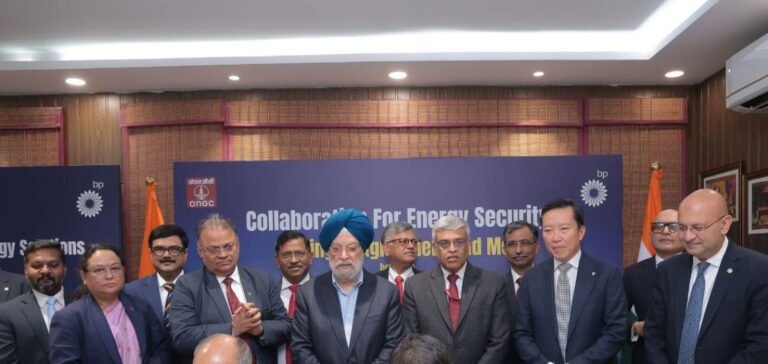India’s energy sector could see a significant shift following the announcement of a strategic partnership between Oil and Natural Gas Corporation Limited (ONGC) and bp. The two companies have signed a memorandum of understanding (MoU) to explore cooperation opportunities in oil and gas exploration and production, as well as in energy trading.
A strategic three-year agreement
The agreement was signed in New Delhi on February 10, 2025, during India Energy Week, in the presence of India’s Minister of Petroleum and Natural Gas, Shri Hardeep Singh Puri. The goal is to strengthen synergies between the two groups, both in the domestic market and internationally.
The collaboration will include the joint evaluation of exploration and production projects, with a particular focus on deep-water operations and the optimization of ONGC’s mature oil fields. These efforts aim to maximize the profitability of existing assets and enhance the technological expertise of both companies.
Participation in offshore bidding rounds
ONGC and bp plan to jointly bid in upcoming offshore oil block auctions organized by the Indian government under the Open Acreage Licensing Program (OALP). This initiative will allow them to access new reserves and secure additional resources for their long-term operations.
An expanded partnership in energy trading
Beyond exploration and production, the agreement includes strategic cooperation in oil and gas trading. The objective is to optimize hydrocarbon commercialization based on market dynamics. Discussions also extend to initiatives in other energy sectors, including carbon capture and storage.
The agreement signed between ONGC and bp reflects the commitment of both entities to accelerate development in strategic segments while leveraging their respective expertise.






















